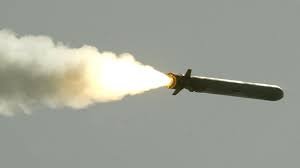As missile fire continues for a fifth straight day between Israel and Iran, Gulf states are on high alert, fearing they could be Tehran’s next targets. Former President Donald Trump weighed in Monday, warning Iran against further aggression and lamenting what he called a “tragic waste of human life.”
“I told them to sign the deal. What a shame and waste of human lives,” Trump said, referencing Iran’s refusal to return to the nuclear agreement. “Simply stated, Iran cannot have a nuclear weapon.”
The growing conflict has sent shockwaves across the Middle East. Gulf Cooperation Council (GCC) members—Bahrain, Kuwait, Oman, Qatar, Saudi Arabia, and the United Arab Emirates—are reportedly bracing for potential Iranian strikes. Iran has previously targeted Saudi oil facilities and launched missile attacks on the UAE, and defense analysts believe similar attacks may now be used to pressure Gulf nations to distance themselves from Israel and the United States.
Mark Dubowitz, CEO of the Foundation for Defense of Democracies, says Iran’s ballistic missile capabilities remain formidable despite Israeli airstrikes. “They have 3,000 ballistic missiles, 2,000 of which are capable of reaching Israel,” he said. Among them, the Shahab-3 and other medium-range missiles are of greatest concern, particularly if paired with a nuclear payload.
“Iran has received missile and nuclear know-how from North Korea, China, and Russia,” Dubowitz noted. “If they complete weaponization, they could mount a nuclear warhead on these missiles.”
In response, Israel has leveraged its air force and cutting-edge missile defense systems, including Iron Dome, David’s Sling, and the Arrow systems—achieving a 90% interception rate. But approximately 10% of Iranian missiles are still penetrating Israeli defenses, causing civilian casualties and infrastructure damage.
Israeli airstrikes have targeted key Iranian nuclear and military installations, including Natanz, which has been severely damaged. However, the deeply buried Fordow enrichment facility remains operational. Intelligence indicates that Iran has recently accelerated its warhead development efforts—what Israeli officials describe as a “breakout moment.”
“The Israeli Air Force has knocked out about 50% of Iran’s missile inventory and 30% of their mobile launchers,” Dubowitz said, “but Fordow is the real threat. It’s hundreds of meters underground.”
With U.S. troops stationed in Iraq and Qatar, and carrier strike groups in the Persian Gulf, Washington is a key player in defending regional allies. Military experts suggest that only the United States has the capability to destroy Fordow using B-2 bombers equipped with 30,000-pound “bunker buster” ordnance.
“There’s a narrow window to prevent Iran from crossing the nuclear threshold,” said Dubowitz. “If Fordow remains intact, Iran retains the capacity to build and launch a nuclear weapon.”
President Trump echoed this urgency, calling for immediate evacuation of Western nationals from Iran and urging the current administration to “finish the job” if diplomacy fails.
Civilians Caught in the Crossfire
While the Israeli Defense Forces (IDF) focus on military targets, including state-run Iranian media and command centers, civilian areas have not been spared from Iranian retaliation. Dozens of Israelis have been killed and hundreds injured as missile barrages continue. Meanwhile, Iranian citizens—already suffering under sanctions and economic distress—are reportedly celebrating some Israeli strikes on regime-linked infrastructure.
A Region on the Brink
With Iran promising more retaliation and Israel vowing to dismantle Iran’s nuclear infrastructure entirely, the Middle East may be on the edge of a broader war. GCC states fear being pulled into the conflict, and global powers are watching closely as the specter of a nuclear-armed Iran looms larger than ever.
If diplomatic backchannels fail and Iran persists with uranium enrichment at Fordow, U.S.-led military action may become inevitable. As one senior Israeli official put it: “We are not fighting for territory. We are fighting to stop a regime that wants us erased.”
For now, missile sirens continue to wail in Israeli cities, and Gulf nations scramble to reinforce their defenses—unsure if they will be the next targets in Iran’s widening war.

